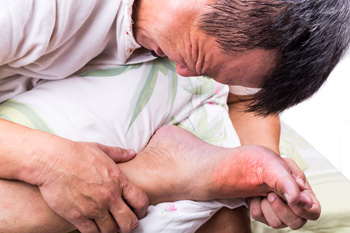
Gout, a form of arthritis, is characterized by painful joint swelling due to a buildup of uric acid in the bloodstream. It often affects the big toe as well as other joints. Failing to address gout can lead to lasting joint damage. Treatment for gout involves lifestyle adjustments, including alcohol avoidance and weight management, along with medication. During acute attacks, non-steroidal anti-inflammatory drugs, NSAIDs, can alleviate pain and swelling, though they don't impact uric acid levels. Corticosteroids, taken orally or injected into affected joints, also offer relief. Colchicine, an alternative to NSAIDs, lessens inflammation if taken early. To prevent future gout occurrences, medications are used to lower uric acid levels in the body. Xanthine oxidase inhibitors limit uric acid production, while uricosuric medicines increase its elimination via urine. It is important to be aware of the adverse effects of any medication. For help with the management of gout, it is suggested that you keep in communication with a podiatrist, who is specifically trained to deal with such problems.
Gout is a foot condition that requires certain treatment and care. If you are seeking treatment, contact one of our podiatrists from Michigan Foot & Ankle Center. Our doctors will treat your foot and ankle needs.
What Is Gout?
Gout is a type of arthritis caused by a buildup of uric acid in the bloodstream. It often develops in the foot, especially the big toe area, although it can manifest in other parts of the body as well. Gout can make walking and standing very painful and is especially common in diabetics and the obese.
People typically get gout because of a poor diet. Genetic predisposition is also a factor. The children of parents who have had gout frequently have a chance of developing it themselves.
Gout can easily be identified by redness and inflammation of the big toe and the surrounding areas of the foot. Other symptoms include extreme fatigue, joint pain, and running high fevers. Sometimes corticosteroid drugs can be prescribed to treat gout, but the best way to combat this disease is to get more exercise and eat a better diet.
If you have any questions please feel free to contact one of our offices located in Livonia, and Southfield, MI . We offer the newest diagnostic and treatment technologies for all your foot and ankle needs.
